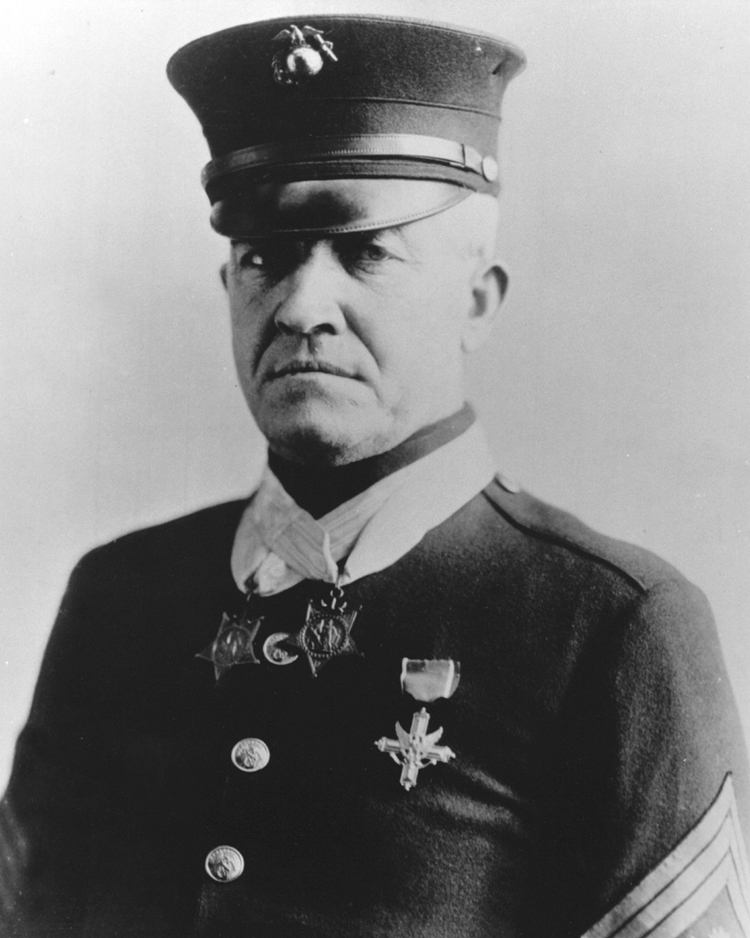
Marine Corps Sgt. Maj. Daniel Joseph Daly is the only enlisted member of the Corps to have earned the Medal of Honor twice. In fact, he’s one of only two Marines to have earned that dual distinction at all. His never-give-up attitude and fighting spirit carried him through several conflicts and are still worthy of the highest praise today.
Daly was born Nov. 11, 1873, in Brooklyn, N.Y., to parents John and Ellen Daly. He had a sister named Mary and a brother named David, and the family eventually moved to Glen Cove on Long Island.
According to Marine Corps University, Daly was a fighter from an early age, likely due to his small stature: he was only 5 feet 6 inches tall and weighed about 132 pounds.
As a young man, Daly spent his time working as a struggling newsboy in Manhattan before enlisting in the Marines in 1899 at the age of 26. Soon after he finished training, he was shipped to China to serve in Peking during the Boxer Rebellion.
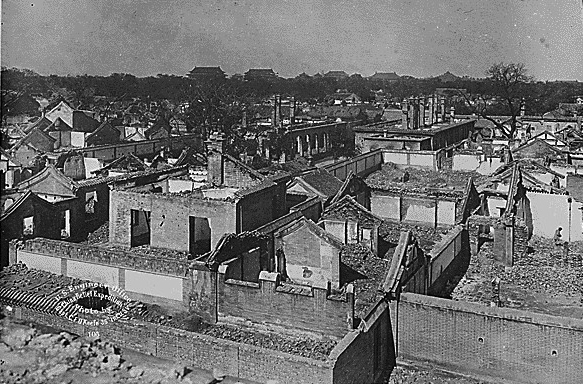
Holding the line
By early August 1900, Daly’s unit was stationed along the Tartar Wall, which was a defensive position south of the American diplomatic compound. Toward the middle of the month, intense enemy gunfire forced them from the fortification, but then-Pvt. Daly and Capt. Newt Hall managed to crawl back onto the wall to mount a defense.
On Aug. 14, Hall left to get reinforcements, leaving Daly by himself to hold the position. The young Marine single-handedly fended off repeated sniper attacks and about 400 soldiers who tried to storm the wall until backup arrived. His valor in action that day earned him his first Medal of Honor, which he received in December 1901.
Over his career, Daly’s service included sea duty on several ships, which took him all over the world, including to Panama, Cuba, Mexico and Puerto Rico.
In March 1911, Daly was on the USS Springfield when he managed to put out flames from gasoline that had caught fire before the general alarm could be sounded. If the fire had continued, the powder magazines on the ship could have exploded. Daly received commendations from his commanding officer and the Secretary of Navy for his quick thinking.
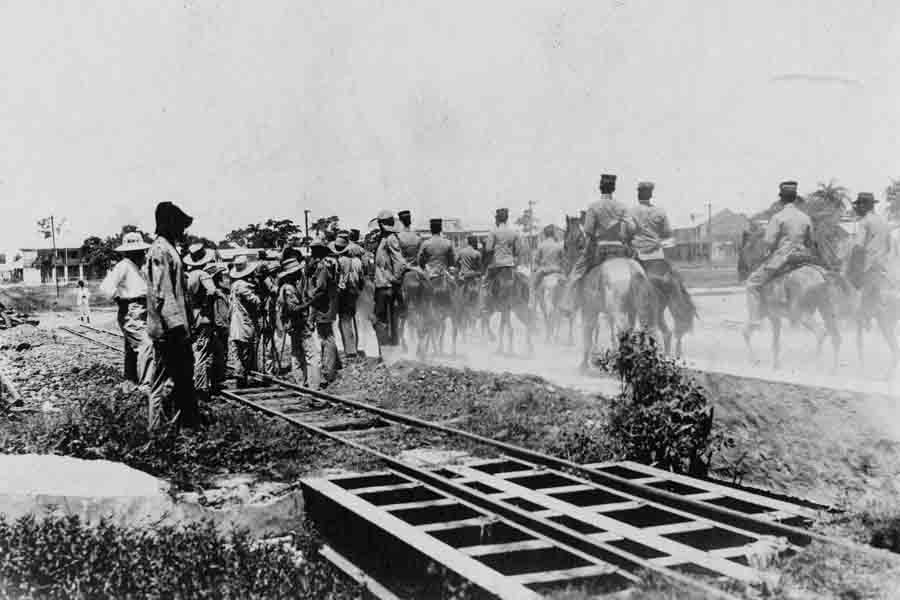
More acts of honor
By the summer of 1915, a revolt in the Republic of Haiti had begun to jeopardize American lives and property, so Marine expeditionary forces were sent in to preserve order and begin “bush” warfare, as Marine historians called it. Daly was serving with the 15th Company (Mounted), 2nd Marine Regiment, and they were ordered to carry out extensive patrols into the country’s interior to seek out revolutionary fighters known as Caco bandits.
At one point, several of Daly’s comrades had been taken prisoner. He tunneled under the walls of the prison where they were being held, killed the guards and set his men free. However, what earned him a second Medal of Honor happened in October during a reconnaissance mission from Fort Liberte.
On Oct. 24, 1915, then-Gunnery Sgt. Daly and his detachment were crossing a river after dark in a deep ravine not far from Fort Dipitie when they were suddenly fired upon from three sides by about 400 Caco bandits, who had been hiding in bushes about 100 yards from the enemy-held fort. The surprised Marines retreated to higher ground and found a good position that they maintained throughout the night, despite being constantly fired upon.
At daybreak, Daly and two other Marines, then-1st Lt. Edward A. Ostermann and then-Capt. William P. Upshur, led three squads forward in different directions to surprise and scatter the Cacos. Their effort worked, and it was instrumental in capturing Fort Dipitie.
Daly, Ostermann and Upshur all earned the Medal of Honor for their actions that day.
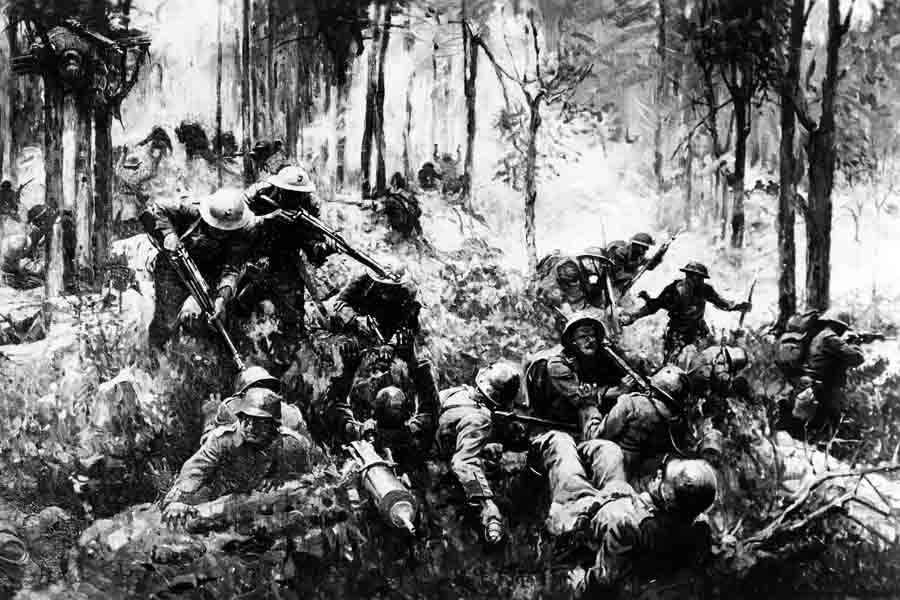
The valor continues
Daly remained in the military through World War I, serving in the American Expeditionary Forces in France from November 1917 to late April 1919. He was injured twice while fighting in several major campaigns, including the bloody Battle of Belleau Wood in June 1918. During that fight, he put out a fire at an ammo dump that could have caused a disastrous explosion. Then, a few days later, he attacked and captured an enemy machine gun emplacement all by himself before rescuing several wounded comrades while under fire.
At Belleau Wood, when his Marines were outnumbered, outgunned and pinned down, the then-1st sergeant famously ordered an attack and leapt forward, shouting this battle cry to his beleaguered men: “Come on, you sons of bitches. Do you want to live forever?”
Daly’s tenacity helped lead the Marines to clear the woods and win the battle for Allied forces. His actions earned him the Army Distinguished Service Cross and the Navy Cross. From the French Government, he also received the Medaille Militaire, the Croix de Guerre with Palm and the French Victory Medal with four clasps.
When the war ended, Daly served with American occupation forces in Germany.
Daly remained on active duty until September 1919, when he transferred to the Fleet Marine Corps Reserve. He then took a job on Wall Street as a bank guard, a position he held for 17 years. Daly officially retired from the Marine Corps on Feb. 6, 1929, and was advanced to the rank of sergeant major.
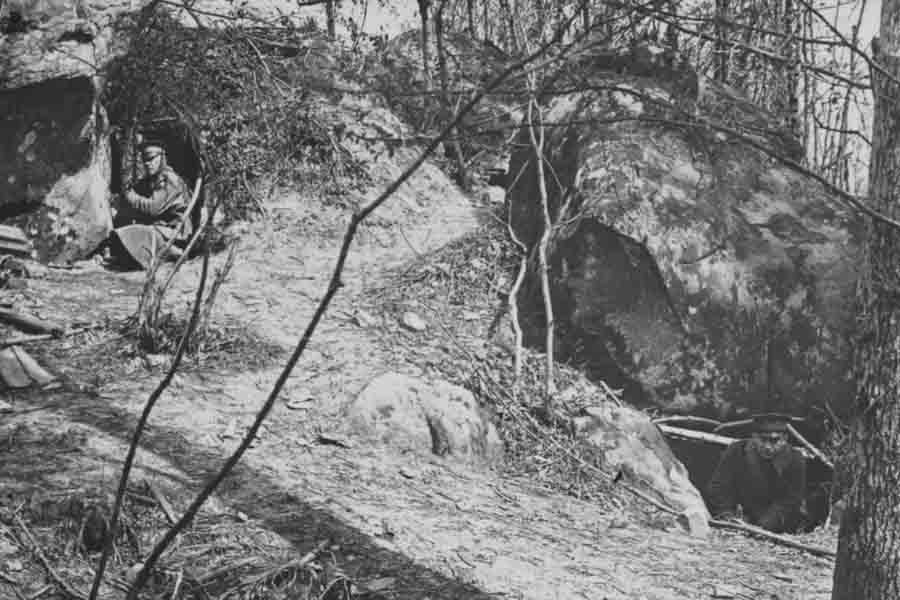
Humble until the end
Daly was offered a commission many times throughout his 30-year career, but he always turned it down on the grounds that he would rather be an outstanding sergeant than “just another officer.”
Daly was known to talk about the exploits of others who fought bravely, but when it came to talking about himself, he was always tight-lipped. Marine Corps University’s biography of Daly said that while he was a natural for publicity, he “disdained it and disliked all the fuss made over him.”
He never married.
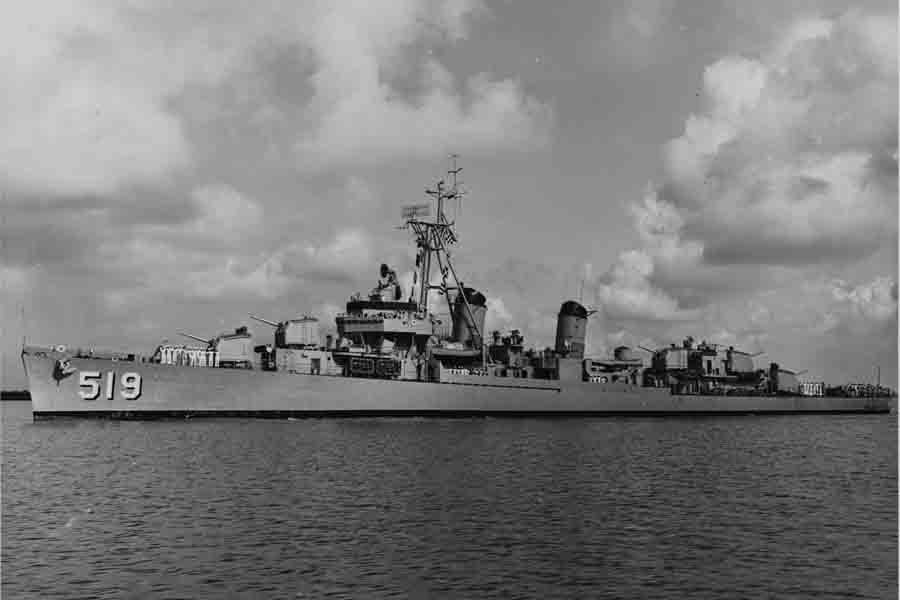
According to a 1932 article in the Brooklyn Daily Eagle, Daly was hospitalized that year after having a heart attack. On April 27, 1937, he died of heart disease at his sister’s home in the Glendale area of Queens.
Daly is buried in Cypress Hills National Cemetery in Brooklyn. Both of his Medals of Honor are housed at the National Museum of the U.S. Marine Corps in Quantico, Va.
In March 1943, the Navy commissioned the USS Daly in his honor. The ship was christened by his niece.
Daly continues to be known as one of the most decorated men to serve as a Marine. Nicknamed “Devil Dog” by many of his compatriots, he was described by famed counterpart Maj. Gen. Smedley Butler — the only other Marine Corps double Medal of Honor recipient — as “the fightingest man ever to serve with the Marine Corps.”
Editor’s note: Medal of Honor Monday highlights Medal of Honor recipients who have earned the U.S. military’s highest medal for valor.









